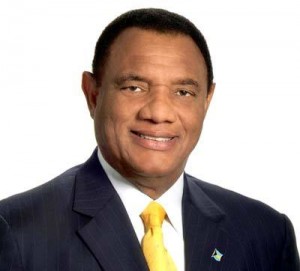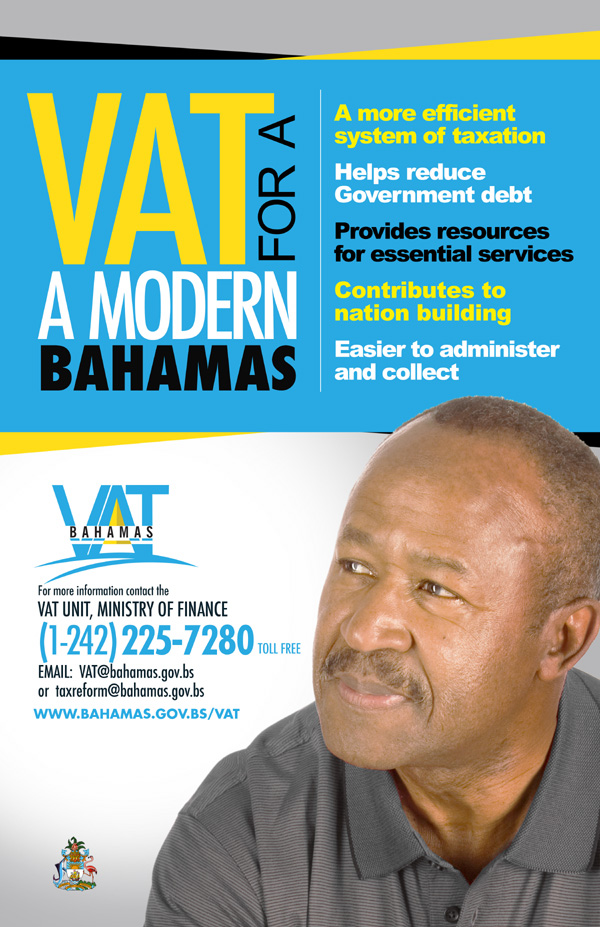
Keynote Address by
The Prime Minister
The Rt. Hon. Perry G. Christie, M.P.
At the 2nd Annual Conclave of Chambers of Commerce
Melia Resort at Baha Mar
Wednesday, 15th April 2015
Introduction
In delivering the keynote address to this timely and most topical conference, I note that the overriding theme for the conference, namely “Ideas and Innovation: Making The Bahamas a More Competitive Jurisdiction” is especially pertinent at this juncture in the economic development of our country.
Such a theme is more pertinent now than ever for the simple reason that the world in which we live and compete to earn our cherished relatively high standard of living is dynamic and ever-changing. In this new knowledge and skills-based environment, it is no longer acceptable nor feasible to rest on the status quo because trying to maintain things as they were, continuing to do things as they have always been done, implies falling ever further behind in the global competitiveness race. As the saying goes, “you have to run merely to stand still and then run even faster to get ahead”.
Indeed, the very concept of competitiveness itself is not static in nature but rather dynamic in that we must continually strive to push the boundaries of our knowledge, our abilities and our capacities. Put quite simply, to do that successfully in the modern economy requires ideas and innovation. It is the nations that are most successful in innovating and applying new ideas as to what should be done and how it should be done that will thrive in the globalized economy of the 21st Century.
The need for change must be embraced broadly across Bahamian society, including not only Government but also the private sector and individual Bahamian citizens. We can no longer hide behind the tired old adage that “if it ain’t broke, why try to fix it”, all the while refusing to acknowledge that in fact it is broken. Progressive ideas, innovation and thinking outside the box are the key to our future prosperity.
I am proud to assert that my Government took the reins of power in 2012 fully aware that, in order to improve the lives and standard of living of Bahamian citizens, we needed reliable and fundamental change in how we do things in this country. In fact, the Charter for Governance that we released prior to the last election was unambiguous on our commitment to change for a better life. In that document, we spoke of our belief that Government must embark on a comprehensive programme of economic, social and fiscal change over the long haul and not merely for the duration of a single electoral term. To that end, we have begun a series of reforms to Government programmes and policies that arguably are unprecedented in the history of our nation. We have boldly sought new ideas as to how better to do things and we have striven to be innovative in our quest for reform and modernization.
For example, after many years of debate and discussion, we took decisive action and developed modern cutting-edge legislation to put The Bahamas on par with the world’s leading gaming jurisdictions. This legislation included a regulatory framework for local gaming. Indeed, the inroads that we have made in regularizing local gaming activity cannot be understated. Up to that point we had faced a diversion of valuable police and judicial resources to deter these activities, and we tolerated a parallel financial system that threatened the stability of the regulated banking sector. With reform, we addressed these distortions and provided for these activities to directly contribute to the revenue generating capacity of the Government.
The institution of the Bahamas Junkanoo Carnival is another example of overdue innovation that we have developed through the commercialization of a longstanding cultural practice, which will create numerous entrepreneurial and job opportunities for the nation’s youth, where unemployment is highest. I expect that the upcoming Carnival will net significant economic returns and place The Bahamas in a strong competitive position relative to other such regional festivals.
I will, by way of introduction, focus on one more key initiative that we have undertaken to solidify and broaden our economic base. I refer of course to the development of The Bahamas Agriculture and Marine Science Institute that is based on the novel and innovative idea that commercial agriculture and fisheries can and must be allowed to flourish on a sustained basis in this country. BAMSI will contribute to the scientific body of knowledge of commercial crop techniques that can flourish in The Bahamas and it will produce a new generation of skilled business persons in agriculture and fisheries, especially among our burgeoning youth population.
These are but a few examples of the type of innovative thinking that I believe is necessary to move our nation forward and onto a higher plane of development. In the remaining time that has been allotted to me this afternoon, I will touch briefly on certain of the major areas of Government in which we have sought to apply new ideas and innovation in order to make The Bahamas a more competitive jurisdiction. I will close with a plea to the Bahamian private sector and individual citizens to continue to work collaboratively with us and do their part in developing ideas and generating innovations that will contribute to our common quest for better outcomes for all.
Innovation in Budgetary Planning for Transparency and Accountability
I will begin with the major innovations that we introduced in respect of budgetary planning.
We determined early on that, in the absence of decisive action, the burden of Government debt would have continued to rise to quickly to attain levels of 70 per cent of GDP and beyond. We simply could not go on mortgaging the future of our children to finance the running of today’s Government. We needed to place Government in a position to be able to meet the many and varied demands for public services and infrastructure placed on it in a modern democratic society, doubly so in an archipelagic country such as ours.
We thus judged that returning the public finances of The Bahamas to a healthy and sustainable position was crucial from a public policy perspective. With determined action now, doing so would create an environment that is propitious to more buoyant economic growth, much-needed stronger growth of employment and enhanced private sector investment.
Indeed, we firmly believe that the finances of the Government need to be returned to a position of sustainability if we are to strengthen confidence in the Bahamas as an attractive and secure place for investment, not only by foreigners but by Bahamian entrepreneurs as well.
We have stressed that we will strive to reform and rebuild the basic structure of the public finances such that, over time, we return them to a self-sustaining basis with no need for annual deficit financing and borrowing.
At the same time, by putting the burden of government debt on a downward path back to more desirable and appropriate levels, we will recreate the fiscal room necessary to finance the full complement of our national development plan, including economic renewal and stronger job creation. Seen in this light, fiscal reform is at the heart of the Government’s plan for national economic and social development.
To that end, we established, and are diligently pursuing, a Medium-Term Fiscal Consolidation Plan that comprises a multi-year strategy whose overarching objective is to secure durable structural reform of the principal components of the public finances. The plan consists of four key parts: growing the economy; restraining expenditure; enhancing revenue administration; and securing new sources of revenue, including introduction of a new Value Added Tax as of January of this year.
A key innovation in this process was the establishment and publication of a set of clear and readily monitored targets for the major components of the public finances over the medium term horizon. All major components of the public finances are covered by this framework, including Recurrent Expenditure, Capital Expenditure and Recurrent Revenue. These targets demonstrate quite concretely how Government will achieve its overriding fiscal objectives of eliminating the Government deficit and putting the burden of debt on a downward track to more sustainable levels.
I feel comfortable in stating that the development and public release of such a Medium Term Fiscal Plan is indeed novel to The Bahamas and that it contributes unequivocally to enhanced transparency and accountability in public budgetary policy. It will also provide the guideposts to steer the path of fiscal policy toward the successful attainment of our core fiscal goals.
Innovation in Taxation
As a core component of our medium term fiscal plan, we have embarked on an historic transformation and modernization of our revenue and taxation system. The Government’s actions on the revenue front have begun with measures to improve the collection of existing taxes in line with what is rightfully due to the Government. We are fully cognizant that our revenue system is seriously deficient and we are moving to remedy this situation through a number of targeted reform and modernization measures, initially focused on Customs, Business Licence and Real Property Tax. We are also working toward the creation of one Central Revenue Agency for our major taxes.
Of course, the cornerstone of our revenue modernization plan is the new Value Added Tax that went into effect this past January. After seemingly countless years of seemingly endless discussion, debate and study, we have finally moved forward with fundamental reform of our system of taxation to bring it up to the modern standards of the 21st century.
I would go further in this vein and suggest that our intensive and extensive deliberations on the matter have truly borne fruit in that we have settled on the very best innovative option for our country from both an economic and a fiscal perspective. In the words of Professor Richard Bird, an internationally renowned expert on VAT and taxation in general, the implementation of VAT has been, without a doubt, the most successful fiscal innovation since 1950. Allow me to repeat and stress the key words in the previous statement: without a doubt, the most successful fiscal innovation in over half a century.
I take great pride in the fact that it is my Government that has had the vision and the fortitude to implement such a bold and much-needed reform of our antiquated system of taxation. Rather than continuing to deny the need for and resisting change, we have embraced it for the longer term betterment of Bahamian society.
Innovation in Infrastructure Development
The third major area on which I would like to focus today relates to the planning, financing and execution of public infrastructure. Given the great needs for such investments in our archipelagic nation and the fiscal constraints that we face, it is clear that this is an area in which innovative thinking and new ways of doing things are not only appropriate but necessary.
In this light, I will share my Government’s views on the role to be played by Public-Private Partnerships, or PPPs, in our future development as well as our vision of the way forward in this area.
For us, the main reason to contemplate such arrangements is that they offer the possibility of an improvement in value-for-money for Government. That is achieved through the transfer of risks to the private sector where it is best placed to assess and handle those risks. The improved value-for-money is also secured by the fact that, where it is private sector capital that is employed and at risk, the economically-efficient planning and operational decisions are made. That, in turn, should lead to both better quality services and lower cost services.
In the case of The Bahamas, the archipelagic nature of our nation represents another important motivation for PPPs. As we strive to enhance development prospects across the breadth of our nation, there will be a clear need for enhanced public infrastructure. An avenue will therefore exist for exploring the feasibility and desirability of PPP arrangements with developers and other private sector interests to ensure that the appropriate supporting infrastructure is constructed and managed for the benefit of all stakeholders, including local residents.
Innovation in Planning for Investments and Growth
Finally, I am also rightfully proud of the critically needed and new approach that we have instituted in the area of investment and national development planning. Indeed, The Bahamas has entered a new age as it relates to planning. As I have said before, our view of planning is all about strategic thinking as we prepare for today and the future. Over the years, I have examined how Government was carrying out its duties in this area and concluded that better outcomes could have been attained with wiser strategic planning for development and investment.
To that end, a National Development Plan is being developed in conjunction with the College of The Bahamas, with broad stakeholder input and technical assistance by local and foreign experts and funding from the Inter- American Development Bank. This is a major, ambitious and innovative departure for Government planning in this country and I am confident that it will yield the very concrete and beneficial economic, and ultimately social, benefits to which we all aspire.
In November 2014, a team of professionals in the Office of the Prime Minister, assisted by local and international consultants and the College of The Bahamas began work on a process to develop a widely consulted National Development Plan which will guide the course of the Bahamian economy over the next decades.
Over the next few months, as work on the National Development Plan unfolds, you will see evidence of a transformative approach to governance which places planning and results based management at the forefront of the activities of government so that we can achieve the best opportunities for the people that we serve.
Indeed, planning or rather “strategic thinking” allows us to successfully take an idea from concept to execution, considering all of the known available options and alternatives and recommending the best approach.
Many of you in this room today, as business leaders, are fully familiar with the awesome responsibility that comes with being leaders of your organizations. As a Prime Minister, I make hundreds of decisions about the future of the country each week, if not each day. I must think about the most impactful place that some major investment should go. I must consider whether the cost of incentives to encourage a project on one island of The Bahamas will offer the greater social return as opposed to the competing project where there are fewer incentives. I weigh the merits of legislation. I must consider whether my policies are adequately preparing the young people of today for the occupations of tomorrow and whether my land use policies are fair for the citizens of today, as well as to their children and grandchildren. These are examples of the awesome responsibility of managing a country.
Without question, we can all admit that The Bahamas has been successful as a nation. We have a good quality of life, a high income level per capita, a stable economy and a strong democracy. However, as I have said before, I also believe we can be even greater and substantially more successful, as we begin to utilize strategic planning and coordination on a government-wide basis.
The planning process has begun, first with an in-depth diagnostic of The Bahamian economy and society leading to a State of the Nation Report, a lay of the land, so to speak, about where we truly are and what are our strengths and weakness. The Government also recognizes that the development planning process is not starting from “ground zero”. Many public servants, the private sector and civil society, would have contributed plans in their respective sectors over the years. Some private citizens have drafted development plans that must be considered. Indeed, through this process, the Government intends to align the medium and long-term plans of Ministries and Departments with the National Development Plan and to ensure consistency and coherence.
The second phase of the NDP project involves a series of public visioning civic discussions designed to establish a shared vision for The Bahamas. I have instructed my officers working on the National Development Plan to be as inclusive as possible. This nation will not have a sustainable plan if some are excluded from the process of developing it. I therefore, encourage the opposition political parties, civil society, entrepreneurs, Bahamians who feel marginalized and Bahamians abroad to play an active role in the development of this plan. In the past, we as a country have been Nassau-centric in our scope. However, this National Development Plan is for the whole country. We must magnify the strengths of our Family Islands and the strategic role they play in developing a renewed and sustainable Bahamas.
At the end of this process, our result should be a National Plan that shapes budget allocations, identifies actions for the public service and opportunities for the private sector that are critical to achieving our transformation and enhancing the quality of life for Bahamians over the next 25 years.
Nation-building does not reside with Government alone, it requires participation from all stakeholders. We ascribe to the view that we must engage with all sectors in the process of development planning to understand how each of us can contribute to the future of The Bahamas.
The final concept that I will leave with you today is my vision for a more results-oriented government. I have launched a process called “transformative governance” which encompasses establishing a Centre of Government approach within my office. I firmly believe that such an approach to governance will support accountability. Notwithstanding the great plans which Governments and their societies create – including a National Development Plan; at the end of the day, the people of The Bahamas are seeking results. As Prime Minister, I need to be able to show what my Government and I have done. In this vein, I have partnered with the IDB, once again, to implement greater results-based management within the public service.
The IDB will assist us in designing a computer application (“an App”) to help the OPM, as the Centre of Government, to monitor progress with the key goals elucidated through the development plan. We have recently completed the preliminary work on designing the governance arrangement around this reporting tool to ensure that it is used appropriately and that public servants are held accountable for reporting their progress in achieving the Government’s key initiatives. This approach to governance ensures that the silos of the Ministries can be penetrated to avoid duplication and ensure greater coordination.
Conclusion
The future of The Bahamas is a bright one. But there is work to be done. My Government has begun the process of implementing its bold vision for the future and introducing the novel and innovative ideas needed for fundamental and successful transformation and modernization. We will continue to even more assiduously tackle the problem of crime, not only through stronger security measures but also through social programmes to tackle the root cause of crime and social evils.
However Government cannot achieve what is required on its own. I call upon all Bahamians to contribute to the national challenge of making The Bahamas a more competitive, prosperous, safer and innovative society.












